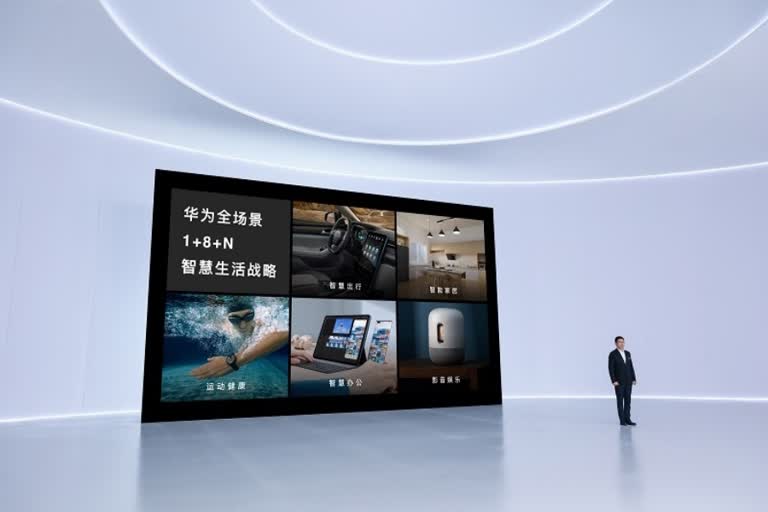Shenzhen:In a bid to end the dependency on American technology, Huawei finally launched its self-developed operating system called HarmonyOS 2.0 that will power nearly 100 devices, including smartphones.
Fed up with the US restrictions, Huawei in 2019 announced to build its own operating system (OS) called HarmonyOS to end the dependency on market leader Google's Android OS.
The company announced the latest version of HarmonyOS in September last year, saying that HarmonyOS 2.0 will bring a comprehensive upgrade to its existing distributed capabilities, including software bus, data management and security.
Huawei has launched a range of smartphones, smartwatches and tablets powered by its new HarmonyOS 2 operating system, including a new version of the HUAWEI Mate 40 Series and HUAWEI Mate X2, the HUAWEI WATCH 3 Series, and the HUAWEI MatePad Pro.
"Every single one of us is a part of this fully connected world, as is every device. We look forward to working with more partners and developers to build a thriving HarmonyOS ecosystem and provide even better experiences, products, and services to our customers the world over," said Richard Yu, Executive Director and CEO of Huawei's Consumer Business Group.
The company also released the HUAWEI FreeBuds 4, its next-generation open-fit Active Noise Cancellation (ANC) wireless Bluetooth earbuds, and two high-end monitors, the HUAWEI MateView and the HUAWEI MateView GT.
The company announced that roughly 100 other Huawei devices -- including both smartphones and tablets -- will be upgraded to run on HarmonyOS 2, giving consumers access to a seamless intelligent experience across multiple devices in all different types of scenarios.
For developers, HarmonyOS allows cross-platform development and cross-device deployment of apps, making the development of apps across devices easier than ever before.
"Multi-device interaction with HarmonyOS makes working across multiple devices as simple as controlling one," the company said.
The new Control Panel supports simple and intuitive connections through a drag-and-integrate feature that allows users to freely connect the devices they want to be based on specific scenarios.
Huawei said it is committed to protecting user privacy and security.
The Chinese conglomerate began work on its own OS as major chips and technologies from the US were not available to the company since May 16, 2019, due to restrictions imposed by the earlier Donald Trump administration amid the trade war between the US and China.
Huawei's consumer businesses faced a tough time due to the inability to use Google's ecosystem in overseas markets.
ETV Bharat / science-and-technology
Huawei launches own operating system to challenge Google's Android
Huawei has launched a range of smartphones, smartwatches and tablets powered by its new HarmonyOS 2 operating system, including a new version of the HUAWEI Mate 40 Series and HUAWEI Mate X2, the HUAWEI WATCH 3 Series, and the HUAWEI MatePad Pro.

Huawei launches own operating system to challenge Google's Android
Also Read:LG to launch new 32-inch gaming monitor
(Inputs From IANS)